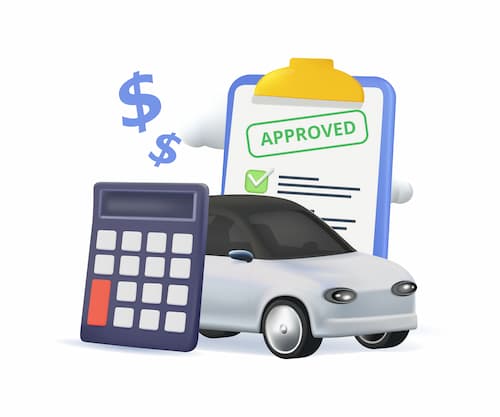There are many ways to compare car insurance companies and rates, and by taking some time to do that you can save hundreds of dollars and find a company that meets your needs.
Below, we'll outline five different ways to compare car insurance companies to help you get the best car insurance.
1. Compare car insurance companies by cost
The cost of car insurance is at the top of the list for most people, and it's the main way people compare their options. When you're comparing rate quotes, there are a few important things to focus on:
- Coverage levels: Ensure you request the same limits of coverage on each quote so you can make a fair comparison.
- Deductibles: Request quotes with the same deductibles, as they can impact premiums.
- Extra coverage at no extra charge: What's included in each rate quote? Are there extras offered at no charge by one company that aren't available from another?
Compare your car insurance rates here.
2. Compare car insurance companies by reputation
An insurance company's reputation is a vital part of choosing the right policy. How well the company takes care of customers will tell you if it will be there for you when you need it. Here's how to compare reputation:
- Visit your state's department of insurance. "Most states have a buyer's guide for auto insurance that lists the companies that sell insurance in your state," says J. Robert Hunter, former director of insurance for the Consumer Federation of America in Washington, D.C.
- Check the company's complaint ratio with the National Association of Insurance Commissioners (NAIC). Ratios below 1.00 indicate fewer complaints than expected for the company's market share.
- See how each company rates with J.D. Power. Note, however, that smaller companies don't appear in J.D. Power's surveys.
- Consider financial stability using AM Best financial ratings. While not the most important factor, it's good to know your insurer is on solid financial footing.
"The two most important things to look at when choosing an auto insurance company are the price and the claims service," says Hunter. "Choose the company that has both a low level of customer complaints and low prices."
See our list of the best car insurance companies.
3. Compare car insurance companies by coverage
As noted above, what an insurance company offers in a standard policy can vary. All insurers are required by law to offer certain coverages, but some throw in extras or offer options that aren't available everywhere.
Here are a few coverage options you might want to look for:
- Roadside assistance. Most companies offer this coverage (some call it towing & labor), but some offer it as a standard part of your policy with no additional cost.
- New car replacement. If you're insuring a brand new car, you might want a company that offers this coverage to ensure depreciation doesn't hit you too hard if your car is totaled.
- Gap or loan/lease coverage. Covering the gap between what you owe and what your car is worth in a total loss, this coverage is much more affordable through a car insurance company than a dealer. So, if you need it, look for an insurer that offers it.
- Accident forgiveness. Avoiding a rate increase after your first accident can save you a lot of money. Some companies offer this as a free perk (usually after the policy has been active a while) while others charge for it.
- Pet injury coverage. If a four-legged friend frequently comes along for the ride, you might want to find an insurer that offers coverage for their injuries in a crash.
Find out more about car insurance coverage options.
4. Compare car insurance companies on digital access
Getting things done on a mobile app or online has become an important part of our lives, and some insurance companies offer a better digital experience than others. While all have an online presence and most have a mobile app, what you can get done through those services varies. Consider:
- Quoting options. Can you get an accurate quote online?
- Policy purchases. Can you buy a new policy through an app or website?
- Making changes to your policy. Can you add or remove cars and drivers through the app or website? Adjust your coverage?
- Filing claims. Can claims be filed through the app? What about online? How does the system work and what claim tracking options are available>
5. Compare companies by car insurance discounts
Before you begin comparing car insurance quotes, make sure you know about potential car insurance discounts. Not all companies offer the same discounts.
Here are some common car insurance discounts to look for:
- Multi-policy (bundling). Most companies offer a discount for bundling home and auto insurance.
- Student discounts. If you have teen drivers, ask about the good student discount and any other discount for teens or students.
- Driver education discounts. Discounts may be available for taking driver education classes or defensive driving programs.
- Paperwork and billing discounts. Check for discounts for paperless billing, automatic payments, paying full and more.
- Usage-based programs. Usage-based insurance discounts are earned by allowing the company to monitor your driving habits. You may get a discount just for signing up.
As you shop, list which discounts that apply to you are offered by each company.
Learn more about car insurance discounts.
Related article: How to compare car insurance quotes.
 Comparing car insurance companies is easy, once you know what to look for.
Comparing car insurance companies is easy, once you know what to look for.


